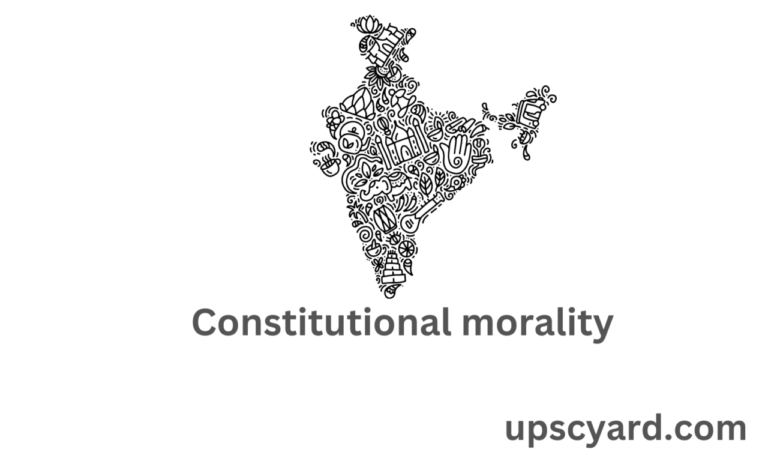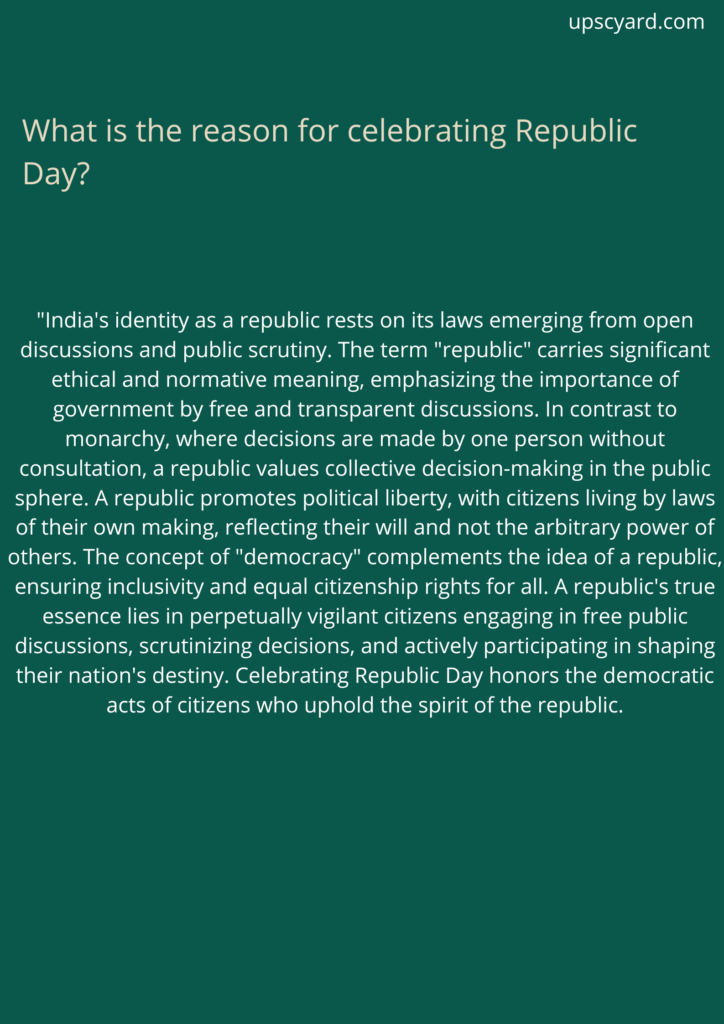
Grote provided an early definition of constitutional morality, referring to it as an unwavering adherence to all aspects of the country’s Constitution. This concept entailed specific obligations for both citizens and authorities, which are outlined below:
- Respect for the Constitution and all authorities derived from it.
- Citizens’ right to free speech, enabling them to criticize and hold accountable officials performing their constitutional duties.
- Mandated authorities and public officials must act within the bounds of their constitutional responsibilities.
- Political contenders and their opposition should hold the Constitution in reverence.
Grote emphasized that ‘self-restraint’ and ‘plurality’ were the core principles of constitutional morality. ‘Self-restraint’ encompassed the responsibilities of all stakeholders in a constitutional regime, as mentioned in the points above, while ‘plurality’ denoted the diverse nature of the governed society. These fundamental elements formed the essence of constitutional morality according to Grote.
Origins of Constitutional Morality
The term ‘morality’ may not be explicitly stated in the Constitution, including constitutional morality. Nevertheless, four sources contribute to the derivation of constitutional morality:
- Constitutional Provisions: Constitutional morality finds its roots within the Constitution itself. Properly interpreting Articles 12 to 35 (Fundamental Rights), Articles 36 to 51 (Directive Principles of State Policy), Preamble, and the Fundamental Duties reveals the pervasive essence emphasizing constitutional morality.
- Debates in the Constitutional Assembly: The deliberations and discussions during the Constitutional Assembly have played a vital role in shaping constitutional morality. Ambedkar’s views, in particular, serve as the foundation for the modern understanding of this concept.
- Historical Events and Context: The unfolding events during the framing of the Constitution and the constitutional history associated with it have contributed to the development of constitutional morality.
- Case Laws and Precedents: In the contemporary era, case laws and precedents, especially those that have led to the reexamination of draconian laws by the Hon’ble Supreme Court and various High Courts, have upheld the spirit of constitutional morality and strengthened democratic ideals.
In the context of ‘constitutional morality’

Is Constitutional Morality an Antidote To Public Morality?
In a separate set of judgments, constitutional morality was given an alternative interpretation, where it was seen as a remedy for public morality.
- Sabarimala Judgement: The Supreme Court ruled on whether women aged between 10 to 50 years old could be denied entry into the Sabarimala temple sanctum sanctorium according to religious tradition. The majority held that public morality must yield to constitutional morality, allowing women’s entry, while the minority emphasized the need to strike a balance between equality and religious liberties.
- State of Bombay v. R.M.D. Chambarbaugwala: In this case, the court adjudicated that gambling was not a fundamental right guaranteed under Article 19(1)(g) of the Constitution, relying on public opinion and an ancient depiction of gambling as a vice.
- Triple Talaq Case: The Supreme Court engaged with constitutional morality but did not use this argument to abolish the practice of Triple Talaq.
- Nashirwar v. State of M.P: The Supreme Court affirmed the State’s power to regulate or prohibit the sale of liquor based on ‘public expediency and public morality.’
- Naz Foundation Judgement: The Delhi High Court rejected public morality as a compelling state interest that could justify restrictions imposed on personal liberty under Article 21 of the Constitution.
- Independent Thought v. Union of India: The Supreme Court struck down the 2nd exception of Section 375 of the Indian Penal Code, citing constitutional morality and the need to reject traditions or customs that are no longer sustainable.
- Joseph Shine Case: The Supreme Court struck down Section 497 of the Indian Penal Code, which selectively criminalized men for having sexual intercourse with a married woman, based on constitutional morality.
Criticism and Concerns Surrounding Constitutional Morality
Attorney General of India, K.K Venugopal, said
“Use of constitutional morality can be very, very dangerous and we can’t be sure where it’ll lead us to. I hope constitutional morality dies. Otherwise, our first PM Pandit Nehru’s fear that SC will become the third chamber might come true.”
The law minister Ravi Shankar Prasad also took a critical view of the Supreme Court’s usage of the principle of constitutional morality. He said
“We hear about Constitutional Morality, we appreciate innovations but nuances of Constitutional moralityshould be outlined with clarity and should not differ from judge to judge and there must be a consensus.“
Ambedkar’s perspective on constitutional morality
As per Dr. Ambedkar, constitutional morality implied a harmonious interaction between the governing and governed, encompassing the peaceful resolution of dissent and conflicts of interest without resorting to major confrontations or violent revolutions.
He believed that resolving the prevailing disparities and inequities in society was not solely the responsibility of the government or the Constitution but also rested on the belief system or principle of constitutional morality. Dr. Ambedkar asserted that this principle could bridge the gap between the form of administration and the essence of the constitution in the country. He held the view that Indian society was largely undemocratic, and constitutional morality held significant importance in a nation where democracy was merely a superficial layer atop the soil.



